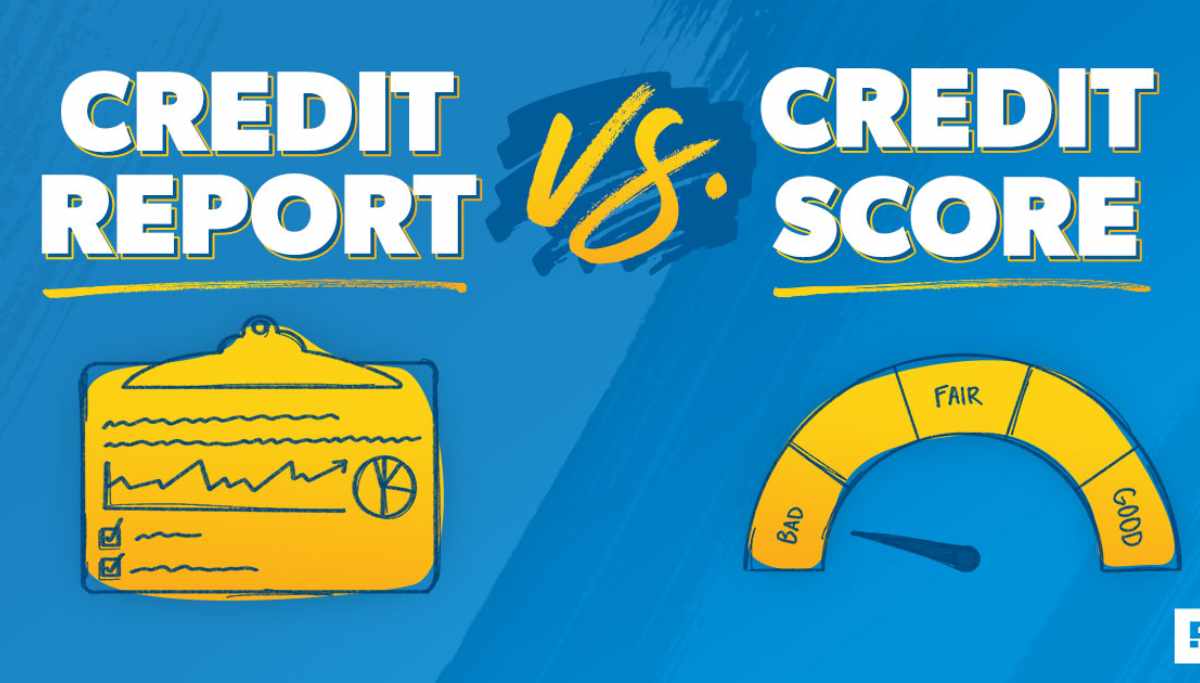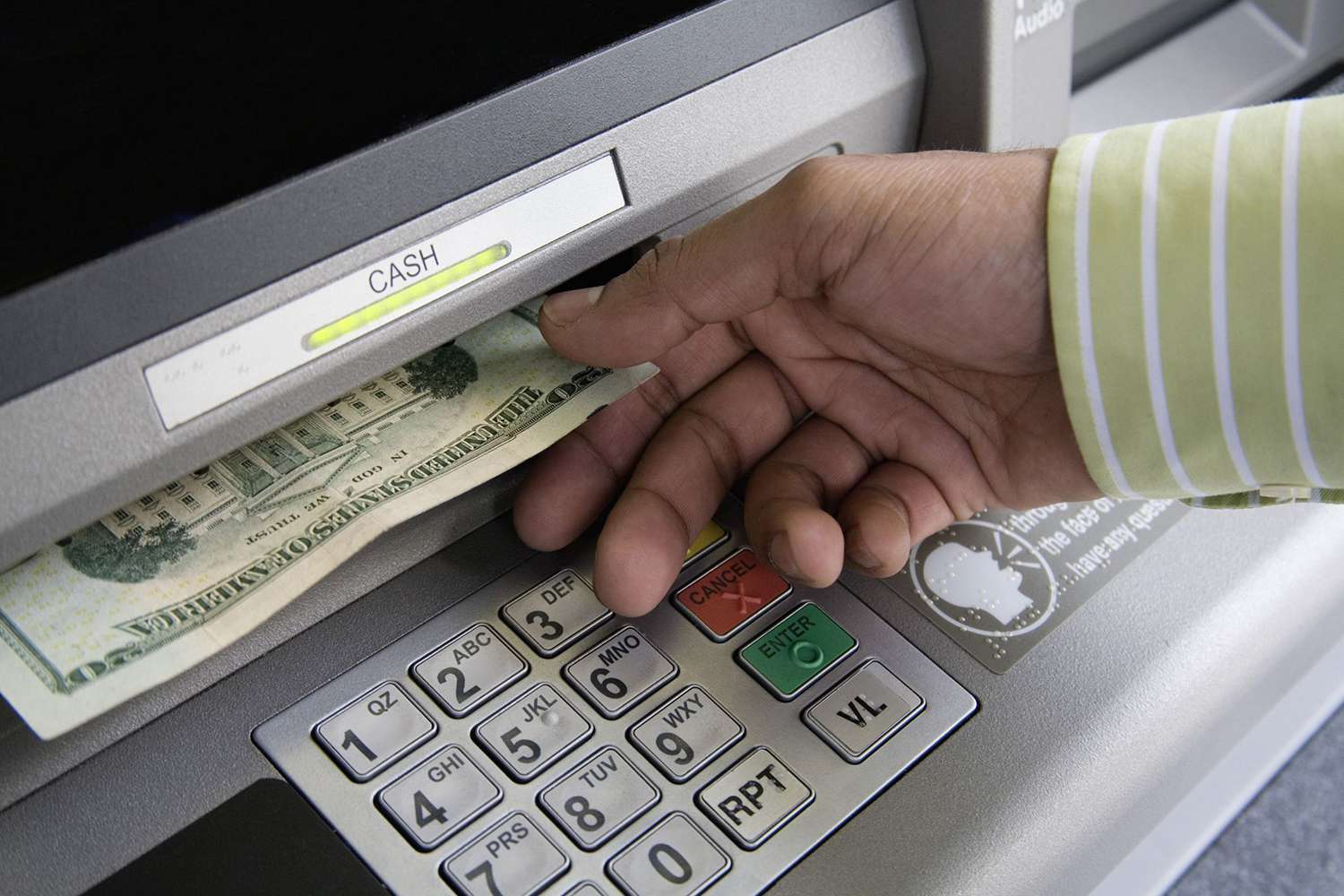

Finance
What Does Remark Mean On Credit Report
Published: October 20, 2023
Learn the meaning of "remark" on your credit report and how it impacts your finances. Find out how to interpret and address these remarks for optimal financial health.
(Many of the links in this article redirect to a specific reviewed product. Your purchase of these products through affiliate links helps to generate commission for LiveWell, at no extra cost. Learn more)
Table of Contents
Introduction
Your credit report is a crucial document that plays a vital role in your financial life. It provides a snapshot of your credit history, including your borrowing and repayment behavior, as well as any potential red flags that lenders may consider when evaluating your creditworthiness. Understanding the contents of your credit report is essential for maintaining good financial health and making informed decisions.
One important aspect of the credit report is the presence of remarks. These remarks, also known as comment codes or description codes, provide additional information about specific credit entries or events. They can provide insights into a variety of financial activities, including missed payments, delinquencies, or any other notable occurrences that have impacted your credit history.
In this article, we will delve deeper into what exactly a remark on a credit report means, the different types of remarks, and their potential impact on your financial standing. We will also explore common reasons for remark codes and discuss steps you can take to address negative remarks on your credit report. Finally, we will emphasize the importance of regularly monitoring your credit report to ensure its accuracy and to stay on top of your overall financial well-being.
Understanding Credit Reports
Before we explore what a remark on a credit report means, it’s important to have a good understanding of credit reports themselves. A credit report is a detailed record of your credit history, compiled by credit bureaus based on information provided by lenders and other financial institutions.
When you apply for credit, such as a loan or credit card, lenders evaluate your creditworthiness by reviewing your credit report. They use this information to assess the level of risk involved in extending credit to you. A credit report typically includes personal information, such as your name, address, and social security number, as well as a comprehensive list of credit accounts, payment history, and public records.
Credit scores, which are derived from the information in your credit report, also play a significant role in determining your creditworthiness. Higher credit scores indicate a lower risk to lenders, making it easier for you to obtain credit at more favorable terms.
It’s important to note that you have the right to access your credit report from each of the three major credit bureaus (Equifax, Experian, and TransUnion) at least once a year, free of charge. Reviewing your credit report regularly allows you to monitor your financial standing, identify any errors or discrepancies, and take appropriate action when needed.
What is a Remark on a Credit Report?
A remark on a credit report refers to a notation or comment that provides additional information about specific entries or events in your credit history. These remarks, also known as comment codes or description codes, are included on your credit report to give lenders and other interested parties a clearer understanding of your financial behavior and any significant incidents that may impact your creditworthiness.
Remarks are typically represented by a two-digit or three-digit code, along with a brief description explaining the meaning behind the code. Each credit bureau may use its own set of remark codes, but there are some common codes that are widely recognized in the industry.
When you review your credit report, you may come across remarks that indicate various types of financial activities or events. These could include missed payments, late payments, accounts in collections, bankruptcy filings, or other items that may have negatively affected your credit history. On the other hand, you may also find positive remarks, such as accounts in good standing or successful debt settlements, which can reflect positively on your creditworthiness.
It’s essential to pay attention to these remarks as they can provide valuable insight into your financial behavior and potentially impact your ability to obtain credit in the future. Lenders and other creditors consider these remarks when evaluating your creditworthiness and determining the terms and conditions under which they are willing to extend credit to you.
Having a clear understanding of the meaning behind these remarks on your credit report is crucial for managing your financial reputation effectively. By familiarizing yourself with the different types of remarks and their implications, you can take the necessary steps to address any negative remarks and improve your overall credit standing.
Types of Remarks on Credit Reports
There are various types of remarks that can appear on your credit report, each providing specific information about your credit history. These remarks help creditors and lenders gain deeper insights into your financial behavior and make informed decisions when assessing your creditworthiness. Here are some common types of remarks you may come across:
- Payment History Remarks: These remarks indicate your payment habits and how you manage your debts. They may include codes for on-time payments, late payments, missed payments, or payments that were less than the required amount.
- Delinquency Remarks: Delinquency remarks indicate the status of accounts that have become significantly past due. They can range from 30 days delinquent to charge-offs, which occur when a lender determines that a debt is unlikely to be collected and writes it off as a loss.
- Collection Remarks: If an account has been turned over to a collection agency, it may result in a collection remark on your credit report. This indicates that the account is in collections and can negatively impact your credit score.
- Bankruptcy Remarks: Bankruptcy remarks signify that you have filed for bankruptcy. There are different types of bankruptcy, such as Chapter 7 and Chapter 13, and each has its own remark code.
- Account Status Remarks: These remarks provide information about the status of your accounts, such as open accounts, closed accounts, or accounts with active disputes.
- Fraud Remarks: If you have been a victim of identity theft or fraudulent activity, there may be remarks indicating such incidents on your credit report. These remarks can help guard against further fraud and protect your credit.
- Settlement Remarks: If you have reached a settlement agreement with a creditor, there may be remarks indicating the settlement terms and the impact it has had on your credit.
These are just a few examples of the different types of remarks that can appear on your credit report. It’s important to review your credit report thoroughly to understand the specific remarks and their implications for your creditworthiness.
Common Reasons for Remark Codes
Remark codes on your credit report can provide valuable information about specific events or activities that have impacted your credit history. Understanding the common reasons for remark codes can help you identify any potential issues and take appropriate action. Here are some common reasons for remark codes:
- Late or Missed Payments: Remark codes related to late or missed payments indicate that you have not met your repayment obligations on time. These remarks can have a significant negative impact on your credit score and may result in higher interest rates or difficulty obtaining new credit.
- Account in Collections: If an account has been turned over to a collection agency, it may result in a remark code indicating that the account is in collections. This suggests that you have failed to resolve your debt and can severely impact your creditworthiness.
- Bankruptcy Filing: Bankruptcy remark codes signify that you have filed for bankruptcy. Bankruptcy has a long-lasting impact on your credit and can severely limit your ability to obtain credit in the future.
- Identity Theft or Fraud: If you have been a victim of identity theft or fraudulent activity, remark codes associated with fraud will appear on your credit report. These codes help alert lenders to the fraudulent activity and can aid in resolving any issues that may have resulted from it.
- Settlement Agreements: If you have reached a settlement agreement with a creditor to resolve outstanding debts, remark codes may indicate the terms of the settlement. These codes can reflect a positive outcome, as you have taken steps to address your debts.
- Disputed Accounts: If you have disputed an account or a specific entry on your credit report, remark codes may indicate the status of the dispute. These codes help lenders understand that there may be a discrepancy or ongoing investigation regarding the accuracy of the reported information.
- Public Records: Certain public records, such as tax liens, judgments, or foreclosures, may result in remark codes on your credit report. These records indicate financial or legal issues and can significantly impact your creditworthiness.
It’s important to carefully review the remark codes on your credit report and understand their implications. If you come across any negative or incorrect remark codes, it’s essential to take prompt action to address the issue and maintain a healthy credit history.
Impact of Remarks on Credit Reports
The remarks on your credit report can have a significant impact on your overall creditworthiness and financial well-being. Lenders and creditors review these remarks to assess your credit history and determine the level of risk associated with extending credit to you. Here are some ways in which remarks can affect your credit:
- Credit Score: Negative remarks, such as late payments, delinquencies, or collection accounts, can lower your credit score. A lower credit score can make it more challenging to qualify for credit and may result in higher interest rates or less favorable terms when you do obtain credit.
- Loan Approval: When lenders review your credit report, they consider the presence of negative remarks as an indication of potential financial risk. This may lead to loan applications being denied or approved with stringent conditions or higher interest rates.
- Interest Rates: If you have negative remarks on your credit report, lenders may see you as a higher-risk borrower. As a result, you may be offered loans or credit cards with higher interest rates, as the lender wants to mitigate the perceived risk associated with lending to you.
- Insurance Premiums: In some cases, insurance companies may consider your credit history, including remarks, when calculating your insurance premiums. A poor credit history can result in higher premiums or even denial of coverage.
- Employment Opportunities: Certain employers may conduct credit checks as part of their hiring process, especially for positions that involve financial responsibility. Negative remarks on your credit report could potentially impact your chances of securing employment in these roles.
- Rental Applications: Landlords often review credit reports as part of the rental application process. Negative remarks may raise concerns about your financial responsibility, making it harder to secure a rental property.
On the other hand, positive remarks, such as a strong payment history or settled accounts, can have a positive impact on your creditworthiness. They can help improve your credit score and increase your chances of being approved for credit at favorable terms.
It’s important to regularly review your credit report to identify any remarks and address any negative ones to minimize their impact on your creditworthiness. By taking proactive steps to address negative remarks and cultivate a positive credit history, you can improve your overall financial standing and increase your access to favorable credit opportunities.
How to Address Negative Remarks on Credit Reports
If you discover negative remarks on your credit report, it’s important to take immediate action to address them and improve your credit standing. Here are some steps you can take to address negative remarks on your credit report:
- Review your credit report: Carefully review your credit report to ensure that the negative remarks are accurate. If you come across any errors or discrepancies, you have the right to dispute them with the credit bureau responsible for reporting those remarks.
- Communicate with creditors: Reach out to the creditors associated with the negative remarks and communicate your willingness to resolve any outstanding issues. If possible, negotiate a payment plan or settlement agreement to address the owed amount.
- Make timely payments: Ensure that you make all future payments on time and remain in good standing with your creditors. Consistently making timely payments can help offset the impact of past negative remarks and demonstrate your creditworthiness.
- Pay off outstanding debts: If feasible, work towards paying off any outstanding debts that have led to negative remarks. This can positively impact your credit history and improve your overall credit profile.
- Seek professional assistance: Consider working with a reputable credit counseling agency or seeking guidance from a financial advisor who specializes in credit repair. They can provide you with personalized advice and strategies to address negative remarks and improve your credit standing.
- Practice responsible credit management: Going forward, focus on responsible credit management. This includes keeping your credit utilization low, avoiding new debts unless necessary, and maintaining a consistent payment history.
It’s important to note that addressing negative remarks and improving your credit takes time and perseverance. Negative remarks typically remain on your credit report for a certain period, but their impact may lessen over time as you demonstrate positive credit behavior. By taking proactive steps to address negative remarks and manage your credit responsibly, you can gradually rebuild your credit and improve your financial standing.
Importance of Regularly Monitoring Your Credit Report
Regularly monitoring your credit report is a crucial aspect of maintaining good financial health. Here are some reasons why it is important to monitor your credit report on a regular basis:
- Spotting Errors and Inaccuracies: Credit report errors can occur, such as incorrect personal information, inaccurate account information, or unauthorized accounts. By monitoring your credit report, you can identify these errors and take steps to correct them, ensuring the accuracy of your credit profile.
- Identifying Fraudulent Activity: Monitoring your credit report allows you to quickly detect any signs of fraudulent activity, such as unauthorized accounts or inquiries. Early detection of fraud gives you the opportunity to take immediate action to protect your identity and prevent further damage to your credit.
- Monitoring Credit Utilization: Your credit report provides details about your credit utilization, which is the percentage of available credit you are using. By monitoring this information, you can ensure that your credit utilization remains low, as high utilization can negatively impact your credit score.
- Tracking Payment History: Your credit report includes your payment history. Regularly reviewing this information helps you track your payment habits and ensure that all payments are being reported accurately. It also allows you to identify any missed or late payments that may need attention.
- Addressing Negative Remarks: Monitoring your credit report helps you stay informed about any negative remarks or comment codes. This allows you to take immediate action to address them and take steps to improve your credit standing.
- Preparing for Credit Applications: Regularly monitoring your credit report prepares you for any upcoming credit applications. By being aware of your credit history and any potential issues, you can take steps to improve your creditworthiness before applying for loans, credit cards, or other forms of credit.
Remember, you have the right to access your credit report from each of the major credit bureaus once a year, free of charge. Additionally, you can consider enrolling in credit monitoring services that provide regular updates and alerts regarding changes to your credit report.
By regularly monitoring your credit report, you can stay on top of your financial situation, identify any errors or fraudulent activity, and take proactive measures to maintain and improve your creditworthiness. It’s an essential practice for anyone looking to achieve and maintain healthy financial habits.
Conclusion
Understanding the significance of remarks on your credit report is crucial for maintaining good financial health. These remarks provide valuable information about your credit history and can have a significant impact on your overall creditworthiness. By regularly monitoring your credit report and addressing any negative remarks, you can take proactive steps to improve your credit standing and increase your access to favorable credit opportunities.
When reviewing your credit report, be sure to pay attention to the different types of remarks, such as payment history, delinquency, collection, or bankruptcy remarks. These remarks can provide insights into your financial behavior and alert lenders to any potential risks associated with extending credit to you.
If you come across negative remarks on your credit report, it’s crucial to take action. Review your report for accuracy, communicate with creditors to resolve outstanding issues, and focus on responsible credit management going forward. Seeking guidance from reputable credit counseling agencies or financial advisors can provide valuable assistance in addressing negative remarks and improving your credit profile.
Remember, regularly monitoring your credit report allows you to spot errors, detect fraudulent activity, track your payment history, address negative remarks, and prepare for future credit applications. Utilize the resources available to you, such as accessing your free annual credit report and enrolling in credit monitoring services, to stay informed and in control of your financial standing.
By taking proactive steps and staying vigilant about your credit report, you can effectively manage your creditworthiness, strengthen your financial foundation, and achieve greater control over your financial future.














